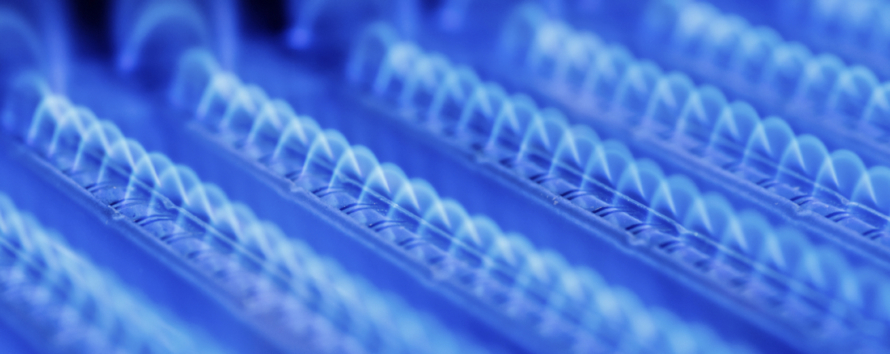
Get your appliance checked
Don’t leave it to chance – unchecked appliances could pose a risk to you and your family
All gas appliances in your property need to be safety checked by a Gas Safe registered engineer annually and serviced according to manufacturer’s instructions. Any appliance not checked could leave you at risk of carbon monoxide poisoning. It’s an extremely good idea to have your gas pipework checked at the same time as having a gas safety check, every year – and it’s law if you’re alandlord.
Sign up to our free reminder service at StayGasSafe.co.uk to get an email or text each year so you don't forget.
Servicing
If you notice any of the following warning signs, you’ll want to get your appliance serviced right away:
- The gas appliance is not working properly.
- The appliance is burning with a lazy yellow flame rather than a crisp blue one.
- Black marks/stains are evident around the gas appliance.
- The pilot light keeps going out.
- There is increased condensation in the room.
What’s the difference between a safety check and a service?
Prior to any work being carried out it is important to agree with your registered engineer their scope of the work so that everyone is clear. For example, there are differences between an appliance service and a safety check and equally between a safety check of appliances and a safety check of the whole installation.
An appliance safety check at a minimum includes all of the checks and tests to ensure the appliance is safe to operate, for example:
- It is correctly set and adjusted to ensure the gas is burning correctly.
- It is of a type suitable for the room in which it is located.
- It is physically stable, securely fitted and properly connected to the gas pipework.
- There is an adequate and permanent air supply suitable for the appliance type installed.
- Any flues or chimneys are operating correctly.
- All safety devices function correctly.
An appliance service will include all of the above checks and tests and any other specific checks, for inspection and/or cleaning of the appliance as specified and detailed in the appliance manufacturer’s instructions. This may include:
- If appropriate, an analysis of the combustion exhaust gases to ensure the appliance is burning the gas safely.
- A check of the condition of the appliance including (but not limited to): the effectiveness of any seals, gaskets, the cleanliness of heat exchangers etc. and checking for any signs of heat or other distress etc.
This is not an exhaustive list and servicing requirements will vary across appliance types and models.
Note: Some appliance servicing regimes provide an interim performance check (annual) to be used in order to determine the degree of dismantling the appliance and the level of servicing required.
If a gas installation safety check is required or specified each appliance will need to be checked as outlined above and additionally:
- All accessible gas pipework is visually inspected to ensure the installation is in good condition, and;
- The gas pipework is tested to ensure there are no gas leaks.
During and after the engineer’s visit
When assessing an unsafe gas appliance, all engineers will follow the Gas Industry Unsafe Situations Procedure (GIUSP) which provides ‘best practice’ advice to engineers on how to deal with specific gas safety concerns.
After they have worked on the appliance, the engineer may issue you with a report detailing the checks they’ve carried out. This could be a Gas Safety Record, depending on what work they have done – however it's not a legal requirement for one to be issued, so it’s probably best to check with the business beforehand what documentation they’re likely to provide. You can visit our Gas Safety Records page for further information.
Flues, chimneys and air vents
These all play an important role in the safe operation of gas appliances, allowing products of combustion to escape and ensuring a high level of ventilation. As cold as it might get during winter, never block up these airways – this could result in carbon monoxide building up in your home.
Chimneys will need to be checked every year for blockages (such as birds’ nests and debris) which can prevent dangerous fumes from escaping. The Gas Safe registered engineer will be on the lookout for these.
If you live in a property with a shared flue or chimney, you’ll need to share responsibility with others to ensure they are checked annually as it’s possible for carbon monoxide to enter properties through these shared vents.
